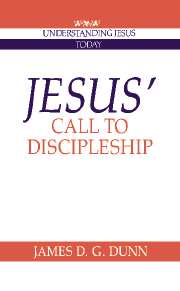3 - Good News for the Poor
Published online by Cambridge University Press: 01 February 2010
Summary
Blessed are you poor, for yours is the Kingdom of God.
(Luke 6:20)Introduction
Jesus' message was therefore both attractive and disconcerting: God's rule was active in his own ministry, in the healing of exorcism and the joy of the shared meal-table; but it was also pressing threateningly close, an imminent crisis which demanded urgent response. And the response he called for was both deeply challenging and reassuring: a repentance–conversion which was no half measure or easily dealt with in passing, but which required the concentration of a whole life in a life-determining decision; but also a faith which was a relaxing trust in and openness to the goodness and benevolent oversight of God.
To whom was this message addressed? To whom did Jesus primarily direct his ministry? Whom did he think would most benefit from or welcome this message of God's kingly rule? In calling to discipleship where did Jesus' priorities lie? Whom did he expect to make such a response? Two words sum the answer. We will focus attention on the first in this chapter and leave the second to the next.
The Poor
Jesus' Vocation
Jesus did not wait to be asked for whom was his message intended. He gave the answer without being asked. According to Luke he read the program and priorities for his mission straight out of the Old Testament – from the prophecy of Isaiah, in fact. He took the opportunity of being invited to read from the scriptures in his own home synagogue to announce his vocation.
- Type
- Chapter
- Information
- Jesus' Call to Discipleship , pp. 32 - 61Publisher: Cambridge University PressPrint publication year: 1992



